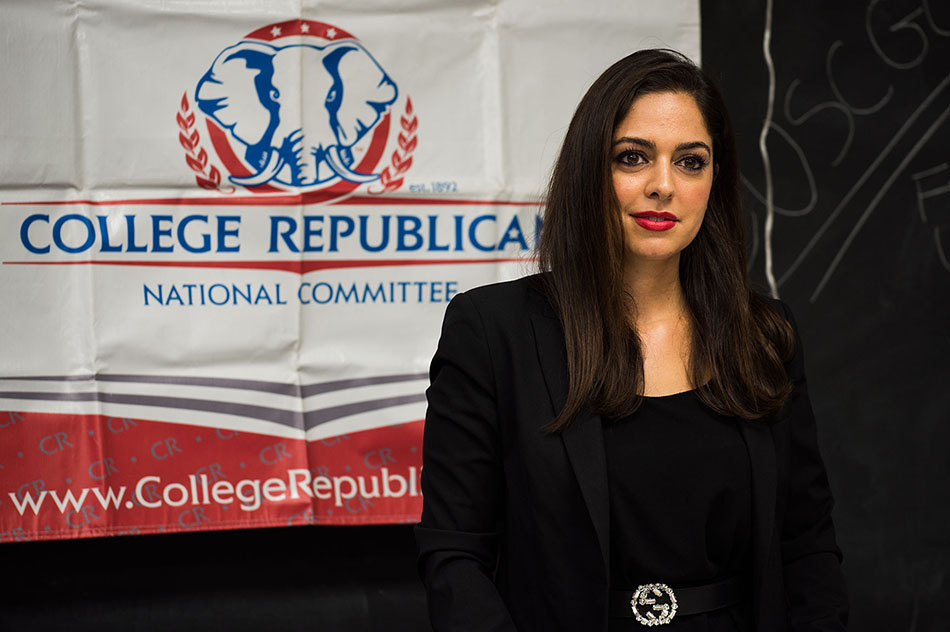
Adelle Nazarian is the CEO of the American Blockchain Political Action Committee. But she has a big narrative to tell about her life before joining the crypto industry, from her Persian roots to her journalism career.
Nazarian, who worked as a freelance journalist after working for major channels such as Fox News and CNN, said her employment led to her dissatisfaction with the media. “Working in journalism was really eye-opening for me because I witnessed how divisive and activist-oriented it’s become,” she told Cointelegraph in an interview.
She stated that one of the motivating elements that drove her to the American Blockchain PAC in 2021 was her desire to work in a capacity that contributed to people’s improvement, adding, “I saw Bitcoin as one way of providing an opportunity to people everywhere in the world to pull themselves up in life.”
1) Your family fled from Iran before the Iranian Revolution, but you’ve never visited. Do you speak Farsi? Tell us more about your background.
My parents were both born in Tehran, Iran, and moved to the United States as children. My father was 15 years old, and my mother was 12 years old. I grew up speaking both Farsi and English. (I am also fluent in Mandarin Chinese and French.) It is one of my ambitions to visit Iran eventually. I’d like to see many different places of the nation, notably Isfahan, where my maternal grandparents were born and raised. I am proud to come from such a diversified and wonderful cultural heritage.
My mother is a stay-at-home parent who also had a caviar company for many years, and my father is an entrepreneur.
2) You used to work in journalism — at Fox News, CNN and elsewhere. Why’d you make the transition into crypto?
Working in journalism was eye-opening for me because I saw how divisive and activist-oriented it has become. For some journalists now, reporting a story is about inserting their own thoughts rather than the facts.
I loved doing investigative journalism, but my true calling is as an entrepreneur and philanthropist. I believed that the blockchain sector was a means for me to use my knowledge and work with varied individuals — from world leaders to common people — to examine how everyone’s experience is genuinely built on one underlying theme that links them all.
That theme is the desire and capacity to improve one’s life and the lives of people around them. It’s a huge aspect in determining your fate in life. I saw Bitcoin as one approach to provide individuals all across the world a chance to go ahead in life. It also allows countries to minimise their reliance on conflict as a means of increasing riches.
3) Tell us about the American Blockchain PAC.
The American Blockchain PAC was established to create a platform for anybody who is interested in seeing a good regulatory framework define what crypto is and what Bitcoin is, as well as clearly describing and comprehending them and how they’re categorised in the United States.
We support candidates for public office who favour blockchain technology. But I believe that many political action committees strive to identify and support just candidates who will win — which we do not do. We’re also attempting to educate and enlighten people about crypto and the adoption of digital assets, so they can fight back against laws that would ultimately hurt them.

4) What’s your favorite crypto?
Bitcoin – because it is unique among cryptocurrencies. I believe everyone is relieved that the SEC said unequivocally that Bitcoin is not a security. Cardano and Ethereum are also favourites of mine. Ethereum started out with excellent intentions, but it may have strayed from its initial mission. Having said that, I believe it has a bright future and the potential to evolve. Bitcoin is a pioneer in the field of digital assets. It was the catalyst for the current revolution.
Unfortunately, I believe that many meme currencies and altcoins have left a terrible taste in people’s mouths when it comes to digital assets, which enhances the case for Bitcoin significantly.
5) Does it matter if we ever figure out who Satoshi really is or was? Why, or why not?
There are two quotes that I like: “No amount of evidence will ever persuade an idiot,” by Mark Twain, and “The truth is a strange thing.” You can strive to keep it under control, but it will always make its way to the surface.”
Of course, there are some who pose as Satoshi and pretend to be him. The hashtag “FakeToshi” is an indication of this. However, the actual Satoshi Nakamoto is alive and well, and he is not a Japanese guy. Finding Satoshi, by Ivy McLemore, was a fascinating book that I just read.
Anyone who has done their homework and researched Bitcoin recognises that there must be a rationale for Bitcoin’s origins. Satoshi did not want these so-called “trusted” third parties and institutions to run away with customer cash, which is a recurring problem — just look at what happened with FTX. It’s ironic that everything he’s been fighting against since the beginning — “trusted” third parties like FTX — have now become the primary instruments for buying and selling Bitcoin. This is contrary to his initial concept.
Concerning whether it matters who Satoshi is, only the genuine Satoshi will pave the way for the next generation of Bitcoin, as well as hundreds of new and growing companies that will profit from the underlying blockchain technology. Bitcoin was designed by Satoshi Nakamoto to be decentralised and peer-to-peer. He never attempted to undertake any of anything for personal gain or motive. He did it for the sake of the entire planet. In theory, we are all Satoshi.
It is the vision that is important, since even the most brilliant technology is useless without vision. Bitcoin was developed to advance mankind in a level that has never been seen before in our collective history.
6) What do you do in your free time?
I’m a serious foodie. I adore trying new foods. I can cook dishes from all around the world. One of my favourite Persian dishes is khoresht gheymeh, a tomato-based stew prepared with meat, lentils, and spices that is typically served with rice and tahdig, a crispy golden crust over fluffy rice. I also like to exercise, read, and travel. I enjoy travelling.
